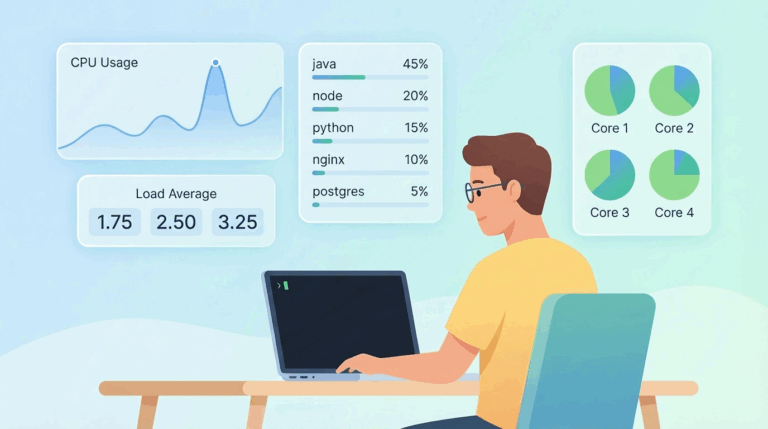Besides Microsoft Windows, Linux is one of the most used and popular operating systems. It is an open-source operating system that communicates with all other programs on a computer to process their requests and pass them to the computer.
It is similar to Windows, iOS, and macOS. You are aware of the world’s most popular operating system running on cell phones, Android is also backed by this operating system. It manages and controls all the software and hardware programs that are linked to your desktop or PC. It acts just like a bridge between the hardware and software of a computer. A computer without a functioning operating system is merely a machine without any processes.
Table of Contents
What does terminal mean in Linux?
The terminal is one of the major features of the Linux operating system. It is a text-based interface that controls the computer running on Linux OS. It helps Linux-operated computers to complete any tasks or operate with the help of commands or texts. In the Linux operating system, the terminal is one of the most effective and widely used methods to accomplish desired tasks without the need to write codes.
You can also use an online terminal for your Linux system. Comparatively, Linux is a secure operating system but you can make it more secure with the help of a VPN as they provide strong security so you browse safely as well as anonymously.
Due to its several benefits and effectiveness, companies like Apple changed their foundation to Unix and gained the Bash and Z shell, Moreover, Microsoft developed its own open-source command line known as PowerShell.
Different ways to clean your Linux machine using terminal
Linux is quite a straightforward operating system without cluttering up. However, it’s always necessary to clear your system after some time. If your system has a low disc space or small hard drive, it is recommended to occasionally clean up your Linux machine regularly. You can do it weekly or monthly but doing that is necessary as it can affect the overall speed of the system.
There may be several ways for clearing up space on your computer. However, cleaning up a Linux machine using a terminal is the easiest and simple way.
Here are multiple ways you can clean your Linux using the terminal.
Use the commands in the Linux terminal
As we know, a terminal is a command-based interface that performs functions depending on the entered commands.
Several commands can help in cleaning up automatically on your behalf. The following shared 2 terminal commands can be used to clean up a Linux computer. Each command performs a different operation but they are mainly focused on clearing up space on your machine.
See also: Mastering the Linux Command Line — Your Complete Free Training Guide
- sudo apt-get clean: This terminal command is used to clean up space from the downloads. It removes the .deb files from the local repository to free some extra space on your device.
- sudo apt-get autoremove: This command when entered on the terminal eliminates unused or unnecessary packages. Sometimes, your computer automatically installs packages to satisfy dependencies for some packages. However, they are not needed by those packages anymore. This command removes them automatically.
Search for unnecessary or outdated apps and remove them using Linux terminal
It happens that our computer has some apps and games that are idle and we don’t use them anymore. It is always a better practice to remove those lesser-used apps to free up disc space. To clean up your system, you first need to locate those files and apps and then remove them using the terminal.
When done with finding such unnecessary files, use the terminal of your Linux computer and enter the command below with the names of those particular apps or files.
sudo apt-get remove package-name1 package-name2
Clean up APT (Advanced Package Tool) cache in Linux
Unlike Windows, Linux-based operating systems use Advanced Package Tool (APT) for the installation, removal, and management of the software on the machine. It means that the package downloads and installation process is automatically done by the system. This process leaves some cached data after uninstalling the apps or packages that can occupy some space on your device. With time, this cached data can grow large and can occupy a lot of space so your device can run out of space. You can see the overall occupied size of this cache using the following command of the terminal.
sudo du -sh /var/cache/apt
You can clear those cache data by entering the following command: sudo apt-get autoclean



